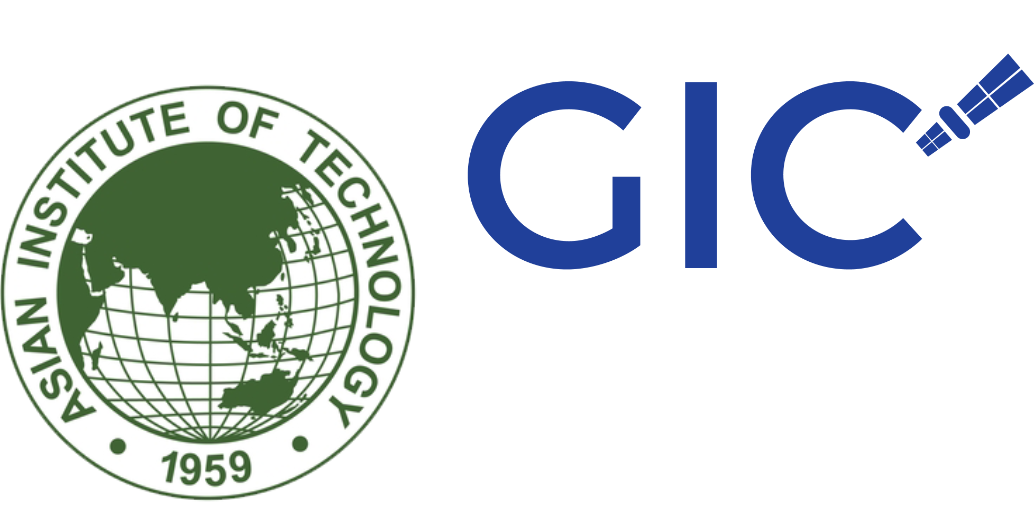
This story was first published by AIT’s Office of Public Affairs. Click here to access the original story on AIT’s website.
Farm and Manage Land Smarter: AIT provides trainings on tools and applications for Agro-Ecological Zoning
Office of Public Affairs
October 15, 2021 – Following the launch of global database using advanced technologies to help farmers and policymakers decide which land is suitable for which crop under different agro-climatic, agro-edaphic and climate change scenarios, a user-friendly tool and technical training were provided to technical staff working at the national level from around the world to utilize the datasets and methodology for assessing land resource potential and constraints aiming to increase agriculture productivity and ultimately help to eliminate hunger, food insecurity and malnutrition.
As the world population is expected to reach 9.8 billion in 2050, productive land — the source of food, feed and fuel to power the increased population, is finite resource under threats of changing climate. Since the 1990’s the Food and Agriculture Organization of the United Nations (FAO), in partnership with the International Institute for Applied Systems Analysis (IIASA), has developed the Agro-Ecological Zones (AEZ) methodological approach for assessing the agricultural suitability and potentials under a changing climate.
The GAEZ version 4 was launched on June 17, 2021 as a critical platform to understanding change in climate – how it changes land productivity, crop calendar, and supply chain which affects food security. The Global Agro-Ecological Zoning (AEZ) data have been constantly updated, to be useful for global applications and for countries where national data may not be available.
Implementing national AEZ is a complex task that requires numerous skills to effectively combine various data sources and influence land use planning. To this end, FAO and AIT have been collaborating in developing open-source applications for agro-ecological zoning, strengthening technical capacities in Asia-Pacific Region such as in Thailand, Myanmar, Afghanistan, United Arab Emirates, Ghana, Angola, and developing national platforms to visualize and access the results from Agro-Ecological Zoning.
From October 11th to 15th 2021, FAO and AIT, in collaboration with ESRI and IIASA, organized a training on Introduction to Ago-Ecological Zoning: a framework for agricultural development and land use planning. Attended by almost 100 participants from 22 countries.
Geoinformatics Center of the Asian Institute of Technology (AIT) and the Geospatial Unit, Land and Water Division (NSL) at FAO, provided introductory information on AEZ from theoretical concepts and definitions to practical outputs and results.
“These kinds of tools are very important because we have to manage the land resources properly. The agricultural potentials and constraints are not the same everywhere and must be better understood” said Rajendra Shrestha, AIT Professor of Land Resources and Management.
Various trainers from different organizations shared their knowledge and experience: Prof. Rajendra Shrestha (Professor of Land Resources Management at AIT), Kavinda Gunasekara (Associate Director of AIT’s Geoinformatics Center (GIC)), Thaileng Thol and Lakmal Deshapriya (Research Associate/Senior Research Associate at GIC), Freddy Nachtergaele (AEZ International Consultant at AIT), Gianluca Franceschini (Senior Geospatial Data Scientist at FAO), Federica Chiozza (Land Monitoring Expert at FAO); and Sam Libby (Practice Lead from Nonprofit and Global Organization (ESRI)).
This five-days training is available online. It provides various presentations and exercises on AEZ applications, downloading and use of GAEZ data, preparation of crop summary tables, land evaluation, land use planning, climate data analysis, modelling crops, management and land utilization type, crop parameters, water balance, yield, limiting factors, soil characteristics, topography and country applications e.g. Pakistan, Afghanistan, Angola, Lao PDR.
During the training, Prof. Rajendra highlighted the importance to use properly the different tools presented and that stronger technical capacities on use of AEZ technology is required for better planning and land management. Federica Chiozza stressed the importance of making the platform and global data available, to complement local data when available, to advance the implementation of the Sustainable Development Goals.
Resources:
Watch Agro-Ecological Zoning (AEZ v.4) Training Workshop:
https://youtube.com/playlist?list=PLKdGIbtBVuW2Lc42sWqt-tQyiUJGVQVHz
Access Training materials:
